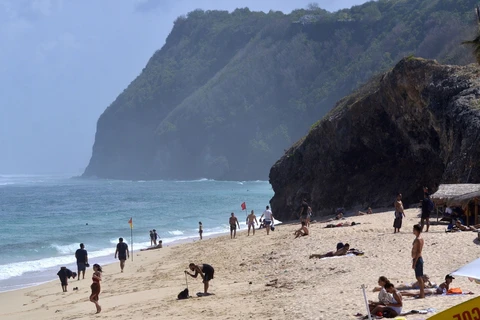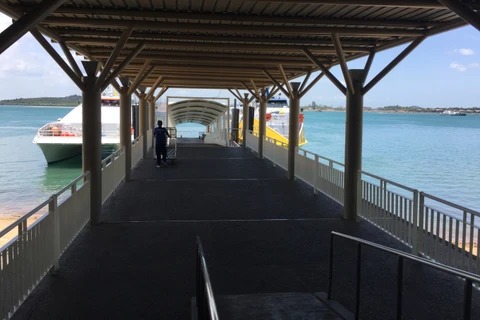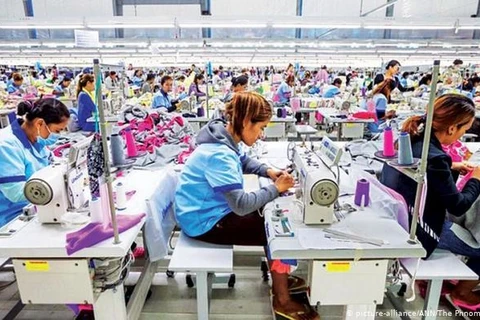 An Indonesian health official takes temperature readings of arriving passengers at the Jakarta international Airport on Feb 23, 2020. (Photo: AFP/VNA)
An Indonesian health official takes temperature readings of arriving passengers at the Jakarta international Airport on Feb 23, 2020. (Photo: AFP/VNA) Jakarta (VNA) – The COVID-19 pandemic has wiped out around 85 trillion rupiah (5.87 billion USD) of Indonesia’s tourism revenue so far this year, forcing business associations to call on the government to provide a greater stimulus for the virus-battered industry.
The hotel and restaurant industry has lost nearly 70 trillion rupiah in revenue as leisure travel has come to a complete halt, while aviation and tour operators have lost 15 trillion rupiah in revenue, according to data from the Indonesian Hotel and Restaurant Association (PHRI).
More than 95 percent of workers in the tourism sector are being furloughed without pay, PHRI chairman Hariyadi Sukamdani told lawmakers during a hearing on July 14, adding that 2,000 hotels and 8,000 restaurants closed during the first three months of the outbreak, which started in March in Indonesia.
Hariyadi told lawmakers that the government’s tax incentives were not an effective measure to stop the bleeding, adding that many workers in the tourist sector could not access the government’s pre-employment card programme, resulting in a further blow to the industry.
Banks will need to extend the debt-restructuring programme and provide working capital loans to rescue businesses in the tourist sector, he said.
From January to May, Indonesia recorded just 2.9 million foreign tourist visits, a 53.56 percent drop from the same period last year, according to Statistics Indonesia (BPS) data.
The government has allocated 695.2 trillion rupiah from the state budget as a stimulus to strengthen the healthcare system and bolster the economy amid the coronavirus pandemic. However, business associations and economists have openly criticised the slow stimulus disbursement, which they say will risk recovery in Southeast Asia’s biggest economy.
The tourist sector was being abandoned by the government as the stimulus aimed at rescuing businesses had not yet arrived after three months of pandemic, Indonesian Chamber of Commerce and Industry (Kadin) vice chairman for tourism Kosmian Pudjiadi said.
Tourism-related businesses would go bankrupt by the end of year if the government and banks were unable to provide the much-needed cash injections to businesses and stimulate consumer demand for businesses to survive throughout the pandemic, he added./.
VNA
























